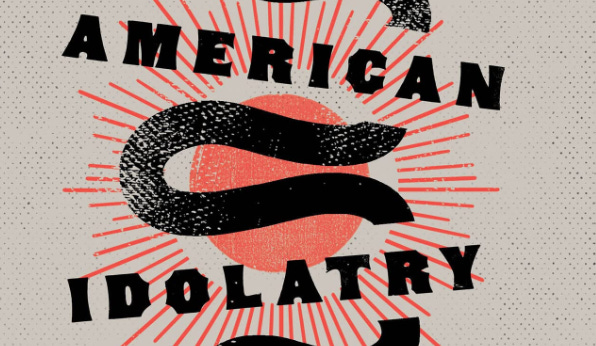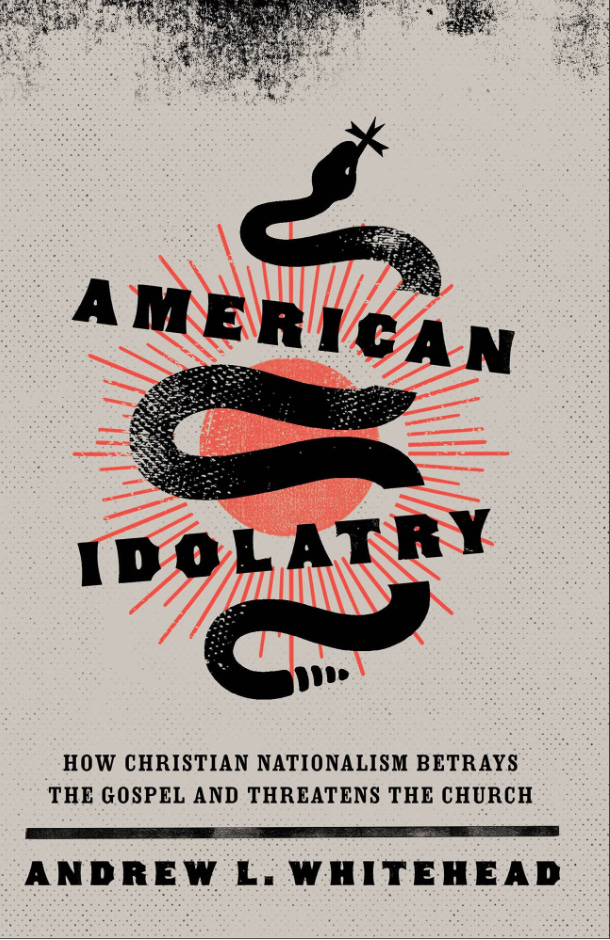We could ask if there is any other kind of politics in our country these days.
One of the most common features of political rhetoric is called a jeremiad, which is a fear-based shaping of discourse in order to provoke people to vote for a particular candidate. Andrew Whitehead in his new book, American Idolatry: How Christian Nationalism Betrays the Gospel and Threatens the Church, puts names and faces to those who make use of these fear-based jeremiads. He most often mentions Franklin Graham, but he is not alone. Think also of Tucker Carlson, Stephen Wolfe, Ann Coulter, James Dobson, and Robert Jeffress. Each of these stimulates their sizable audiences with fear.
There are three features in jeremiads. First, they focus on fear and anxiety. Second, “they contrast the current situation with an idealized version of the past.” Third, they “call for repentance and renewal.” Which means, “Vote for me!” Which means, “I can lead us to the promised land.”
In American history the Puritans famously made use of the jeremiad, but the history of political rhetoric throughout the centuries demonstrates the use of the jeremiad by all parties. Very few politicians rise to the surface without inciting or stimulating anxiety about the other candidate and the conditions of society. Whitehead’s concern is white Christian nationalism so he focuses on those in that movement, and on those who stimulate that movement by the use of fear.
Three, yea four, fears come to the surface in his chapter, and to use an important word here, these fears are genuinely intersectional.
Racialized fear. The racialized fear of “the other” has been shaped by white Christian nationalism, as well as by white nationalism. That is, “Fear surrounding the abolition of slavery, fear of the upending of cherished social norms that placed whites above Blacks, and fear of reprisal from Black Americans are a consistent presence in the fight for a Christian, and presumably white, America.” Think of Native Americans, as well. From the outset, fear of the “other” in a racial sense shaped society and law and government – and not a little of it was put into motion by those claiming to be Christians.
Immigrant fear. “Highlighting cultural and religious differences, American Christians fear immigrants will chip away at the country's Christian foundations.” He names and quotes James Dobson whose rhetoric in the election of Donald Trump played a part in stimulating action out of fear that what was happening would “bankrupt the nation” and “take us down” and “overwhelm culture” (words of Dobson). This fear has been shaped by relations with Mexicans, South Americans, Asians, and Middle Easterners, not to avoid the different, but wholly the same, circumstances of capturing, transporting, and selling Africans to become enslaved persons to the shores of the colonies.
Religious fear. In American history, from the days of the Puritans to current evangelical fears about religious corruption, many have stimulated political discourse with fear about non-Christian religions. From Native American religion to the immigration of the Irish who brought Roman Catholicism to the United States in greater numbers, as well as to today's fears over the “invasion” of Middle Easterners with Islam. The numbers of Muslims in the United States are so small that people with social capital and intelligence should deny all fear-mongering based upon the supposed invasion of sharia. I remember as a grade schooler when in my community the election of John F Kennedy made many think that the Pope would take up residence in Washington DC. What was said of Barack Obama as a Muslim in the White House defies intelligent explanation.
Fear of Religious persecution. It is common today to hear in political rhetoric that the Democrats or the secularists will persecute Christians and ban Christians from positions of power. This is another rhetorical tactic of those who want power. And religious persecution fear has shaped white Christian nationalism.
Andrew Whitehead takes us to the Bible: more than 100 times the Bible teaches us not to be afraid, not to fear. For those who trust in God, for those who think the way of Jesus is to love our neighbor, for those who think the Kingdom of God should shape Christian existence in the world today, for those who genuinely believe in a tolerant society, these four fears, however interconnected, are unworthy of the Christian way of life.
“If American Christians are truly committed to religious freedom and democracy, why are we trying to silence the voices and input of those around us?” The “inverted golden rule” is mentioned, and I had not heard of it: “expect from others what you would do unto them.” Which requires the person who is self-aware to deconstruct the political rhetoric and agenda. Namely, those who would like to silence others, or suppress others, are the ones who are silencing and suppressing. That's the inverted golden rule. Ouch.
One explanation is fear because “equality feels like discrimination when you are used to privilege.”
A Christian approach to counter these fears involves empathy, which requires paying attention, proximity to others, humility about oneself and one's power, and sacrifice for the good of the other.






This is right on target 🎯. Thank you 🙏🏼